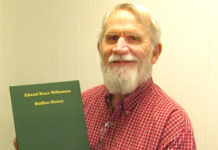Because I am an old man, snow scares me. Sometimes, I think it is downright evil. It weighs down the lines to my house, ready to snap them and plunge me into the cold and dark. If I try to escape, I will find it piled on the porch, ready to grab my feet out…



